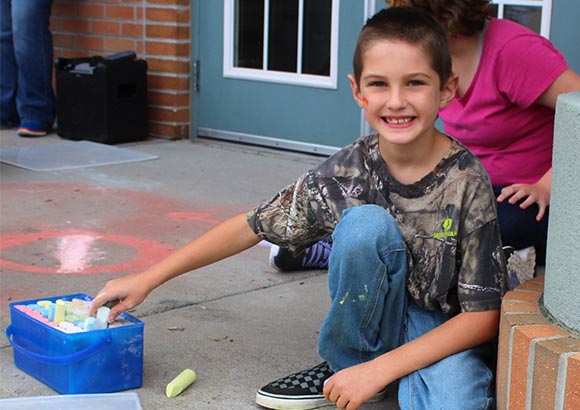School-Wide Positive Behavior Interventions and Supports
Rivermont Schools began schoolwide adoption and implementation of Positive Behavior Interventions and Supports in 2013-14. Schoolwide Positive Behavior Interventions and Supports is a 3-tiered evidence based best practice for creating and sustaining school environments that are more proactive, predictable and effective for achieving academic and social success. SWPBIS helps to create school environments in which students are more likely to be successful in transitioning to public education classroom environments, to graduate, and to be successful in meeting their post-secondary goals.
By implementing PBIS, Rivermont aims to increase appropriate school and classroom behaviors through consistent, ongoing instruction of desired behaviors. Three important values of Rivermont are:
- Be There, Be Ready
- Accept Responsibility
- Respect Self and Others
All students are explicitly taught what it looks like “Be There, Be Ready, Accept Responsibility, and Respect Self and Others” in every area of the school. These behavior expectations are clearly displayed on the walls around our school. Our goal is to explicitly teach behavioral expectations and then recognize and reinforce the positive behaviors shown by students. This approach to managing behaviors is positive, proactive, and preventative. Students are consistently acknowledged for exhibiting appropriate behaviors by receiving various positive behavioral reinforcements (i.e., points and levels, token economy, participation in school-wide celebrations).

Rivermont Schools recognizes the unique nature of each student, rejecting a one-size-fits-all approach to special education. School-Wide Positive Behavior Interventions and Supports (SWPBIS) at Rivermont Schools is defined as a data-based, tiered approach that concentrates on creating learning environments which supports the students. It is implemented by collaborative, school-based teams comprised of administrators, therapists, and classroom teams. School-wide expectations for behavior are clearly stated, taught across all school environments, and frequently reinforced. Both individual and school-wide learning and behavior problems are assessed comprehensively. Based upon a functional assessment of learning and behavior challenges, interventions are implemented to address skill acquisition, skill building, and/or generalization across multiple settings. The effectiveness of the selected interventions is evaluated and reviewed, leading to data-based revisions. Students are supported through a common approach to behavior management and a continuum of methods that help them learn and maintain appropriate behavior and discourage inappropriate behavior.
Terms You Will Hear
-
Time Away
This procedure allows an opportunity for a student to remove themselves from the instructional environment in an acceptable manner for a period of time when experiencing difficult emotions.
-
Direct Behavior Rating
Each student brings home a daily report so that families can review and discuss their child’s day with them. Ratings are given for academic engagement, meeting school-wide expectations, social interaction/pro-social communication and any destructive or dangerous behaviors.
-
Intensive Intervention
Structured and therapeutic process to address significant problem behaviors, which includes perspective-taking, the teaching of replacement skills, problem-solving, processing and debriefing.
-
School Store
Students can exchange earned tokens or points for preferred items or activities through the school store. Besides recognizing their positive behaviors mean access to fun and exciting things, students practice basic account management and purchasing.
-
Tiers 1, 2, 3
Tier 1 interventions identifies those supports which are in place for all student and include things such as social skills instruction, student support plans and school store. Tier 2 targets a smaller percentage of students who continue to receive tier 1 supports and Check-In/Check-Out, smaller group instruction and increased progress monitoring. Tier 3 includes interventions from previous tiers and highly intensive and individualized supports such as functional behavior analysis and 1:1 staffing.
-
Token Economy
This behavior change system increases appropriate student behaviors by rewarding tokens (or symbolic currency) when staff observes students using those appropriate behaviors. Students can then save and exchange their tokens for other items or activities in the school store.
-
Self-Governance
Teaching students to help each other, solve problems, give compliments and contribute to the classroom structure enables them to have a voice in their community. Rivermont Schools focuses on what students can do for themselves and teaching self-governance is an important step.


